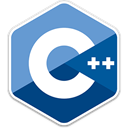D (Programming Language) Alternatives

D (Programming Language)
D is a language with C-like syntax and static typing. It pragmatically combines efficiency, control, and modeling power, with safety and programmer productivity.
Convenience
D allows writing large code fragments without redundantly specifying types, in the style of dynamic languages. Yet static inference deduces types and other code properties, giving the best of both the static and the dynamic worlds.
Automatic memory management makes for safe, simple, and robust code. D also supports scoped resource management (aka the RAII idiom) and scope statements for deterministic transactional code that is easy to write and read.
Built-in linear and associative arrays, slices, and ranges make daily programming simple and pleasant for tasks small and large.
Power
The best paradigm is to not impose one at the expense of others. D offers classic polymorphism, value semantics, functional style, generics, generative programming, contract programming, and more—all harmoniously integrated.
D offers an innovative approach to concurrency featuring true immutable data, message passing, no sharing by default, and controlled mutable sharing across threads.
From simple scripts to large projects, D has the breadth to scale with any application's needs: unit testing, information hiding, refined modularity, fast compilation, precise interfaces.
Efficiency
D compiles naturally to efficient native code.
D is designed such that most "obvious" code is fast and safe. On occasion a function might need to escape the confines of type safety for ultimate speed and control. For such rare cases D offers native pointers, type casts, access to any C function without any intervening translation, and even inline assembler.
The @safe, @trusted, and @system modular attributes allow the programmer to best decide the safety/efficiency tradeoffs of a particular application, and have the compiler check for consistency.
Best D (Programming Language) Alternatives for Mac
Looking for some programs similar to D (Programming Language)? Here are the top-recommended programs we found. Let's take a look if there's anything out there that helps you on whatever platform you're using.

Python
FreeOpen SourceMacWindowsLinuxS60BSDAROSHaikuAmigaOSOpenSolarisMorphOSPython is an interpreted, interactive, object-oriented, extensible programming language. It provides an extraordinary combination of clarity and versatility, and is free...
Features:
- High Level
- Object-oriented Language
- Dynamic typing
- Garbage Collection
- Modular System
- Object-oriented Language
- Rad

Java
Free PersonalOpen SourceMacWindowsLinuxWebAndroidJava MobileS60HP webOSBlackberryAndroid TabletBSDBlackberry 10PlayBookKindle FireJava is a general-purpose computer programming language that is concurrent, class-based, object-oriented, and specifically designed to have as few implementation...
Features:
- Object-oriented Language
- Coding
- Cross-platform
- Garbage Collection
- Object-oriented Language
- X86/x64 Compatibility

PHP
FreeOpen SourceMacWindowsLinuxBSDPHPPHP is a widely-used general-purpose scripting language that is especially suited for Web development and can be embedded into HTML.
Features:
- Object-oriented Language
- Scripting language
- Web Development

C (programming language)
FreeOpen SourceMacWindowsLinuxAndroidiPhoneAndroid TabletBSDiPadAROSAndroid WearHaikuPlaystationC is a general-purpose computer programming language. C is one of the most widely used programming languages of all time.
Features:
- Works at kernel level
- Compiled Language
- Inline assembly
- Manual memory management
- Systems programming

C++
FreeOpen SourceMacWindowsLinuxBSDC++ is a statically typed, free-form, multi-paradigm, compiled, general-purpose, powerful programming language. It is regarded as an intermediate-level language, as it...
Features:
- Compiled Language
- Systems programming
- Object-oriented Language

Ruby
FreeOpen SourceMacWindowsLinuxBSDHaikuRuby is a dynamic, reflective, general purpose object-oriented programming language that combines syntax inspired by Perl with Smalltalk-like features. Ruby originated...
Features:
- Blocks
- Dynamic typing
- Package Manager
- Text processing
- Interpreter
- Object-oriented Language

C#
FreeOpen SourceMacWindowsLinuxBSDC# is a multi-paradigm programming language encompassing strong typing, imperative, declarative, functional, generic, object-oriented (class-based), and...
Features:
- Compiled Language
- Object-oriented Language

Lua
FreeOpen SourceMacWindowsLinuxAndroidiPhoneAndroid TabletBSDiPadAndroid WearHaikuAmigaOSPlaystationMorphOSLua is a powerful, fast, lightweight, embeddable scripting language. Lua combines simple procedural syntax with powerful data description constructs based on...
Features:
- Scripting language
- Configuration
- Scripting

Go (Programming Language)
FreeOpen SourceMacWindowsLinuxBSDGo is an open source programming language that makes it easy to build simple, reliable, and efficient software.
Features:
- Compiled Language
- Class inheritance
- Object-oriented Language
- Performance Monitoring
- Test case management
- Readability

Rust
FreeOpen SourceMacWindowsLinuxBSDA systems programming language that runs blazingly fast, prevents almost all crashes, and eliminates data races. .
Features:
- Typesafe
- Compiler Explanations
- Package Manager
- Test case management
- Abstract Data Types
- Pattern matching
- Static typing
- Type inference
Upvote Comparison
Interest Trends
D (Programming Language) Reviews
Add your reviews & share your experience when using D (Programming Language) to the world. Your opinion will be useful to others who are looking for the best D (Programming Language) alternatives.